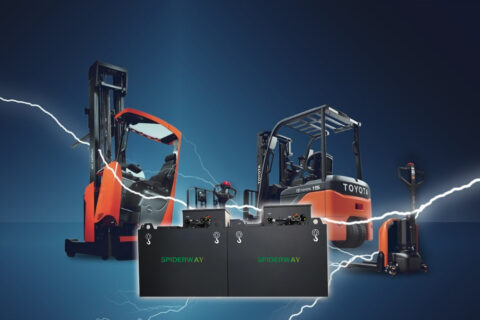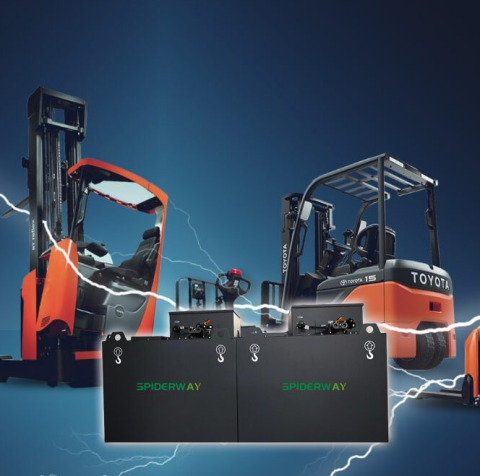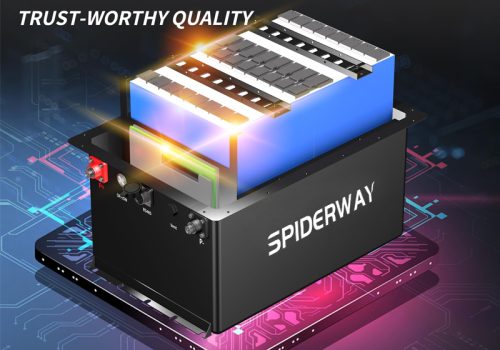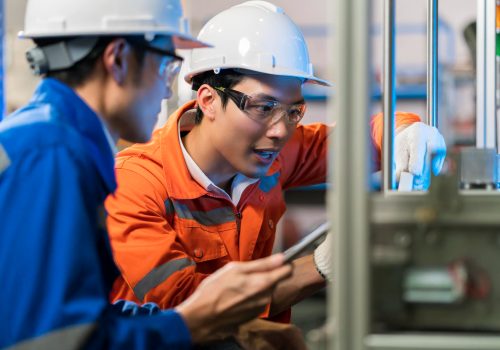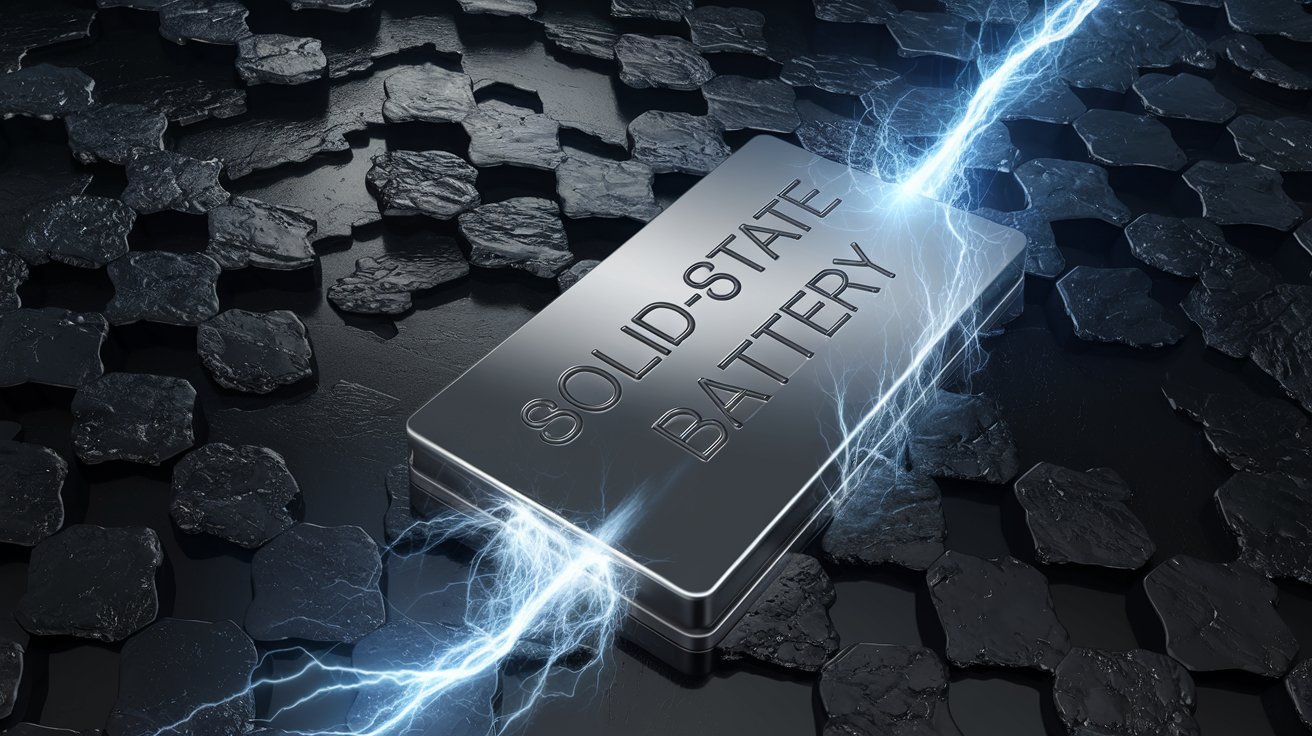
Solid-state batteries are leading the way in energy storage technology, offering significant advantages in safety and energy density over traditional lithium-ion batteries. China has been at the forefront of developing solid-state batteries, with recent advancements indicating a promising future for this technology.
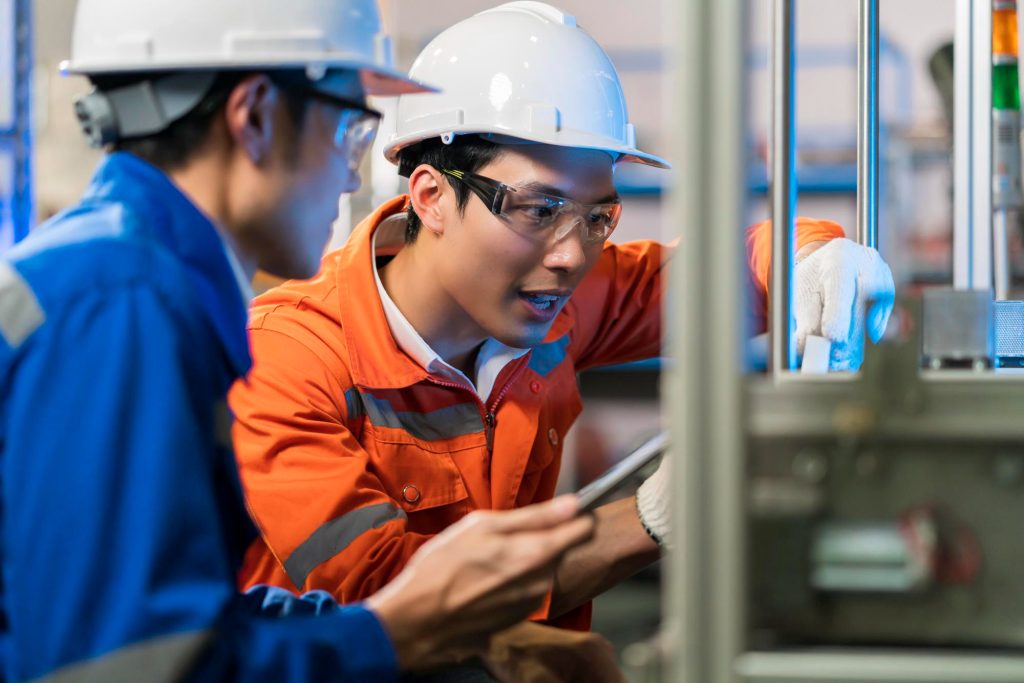
Recent Developments
Qingdao Institute of Bioenergy and Process Technology
The research team at the Qingdao Institute of Bioenergy and Process Technology, Chinese Academy of Sciences, has developed a high-energy, long-cycle life all-solid-state lithium-sulfur battery. This battery boasts an energy density exceeding 600 Wh/kg, which is more than double that of current commercial lithium-ion batteries. The team’s breakthrough addresses conductivity and kinetic issues in lithium sulfide cathode all-solid-state batteries by using a Cu+, I- ion co-doping strategy, significantly improving the lithium ion diffusion coefficient and electronic conductivity. This innovation is expected to have broad application prospects in the field of electric vehicles and more .
2024 World Power Battery Conference
At the 2024 World Power Battery Conference, discussions on solid-state batteries were a hot topic. The commercialization of solid-state batteries is on the horizon, with some car manufacturers indicating that the key milestone is in 2027. However, market promotion does not equate to mass production, and the conditions for stable mass production must address high costs and material bottlenecks .
Industrial Applications
Chinese companies like WeLan New Energy, QingTao Energy, and GanFeng Lithium are promoting the industrial development of semi-solid batteries as a transitional product. CITIC Securities suggests that while Japan is currently leading in the development of all-solid-state batteries, China has advantages such as low technical route risk, good “small step and quick run” rhythm, and abundant industrialization conditions, and is expected to win in the second half of the industrialization of semi-solid and all-solid-state batteries .
Global Competition
The development of solid-state batteries is not just following trends but is a necessary path to mastering the core of future new energy development. The commercialization of all-solid-state batteries on a large scale and their entry into ordinary households is unpredictable, similar to the current situation with fuel vehicles and new energy vehicles. However, the development of a new technology from theory to the laboratory, then to testing and application, and finally to the market is an inevitable process for commercialization .
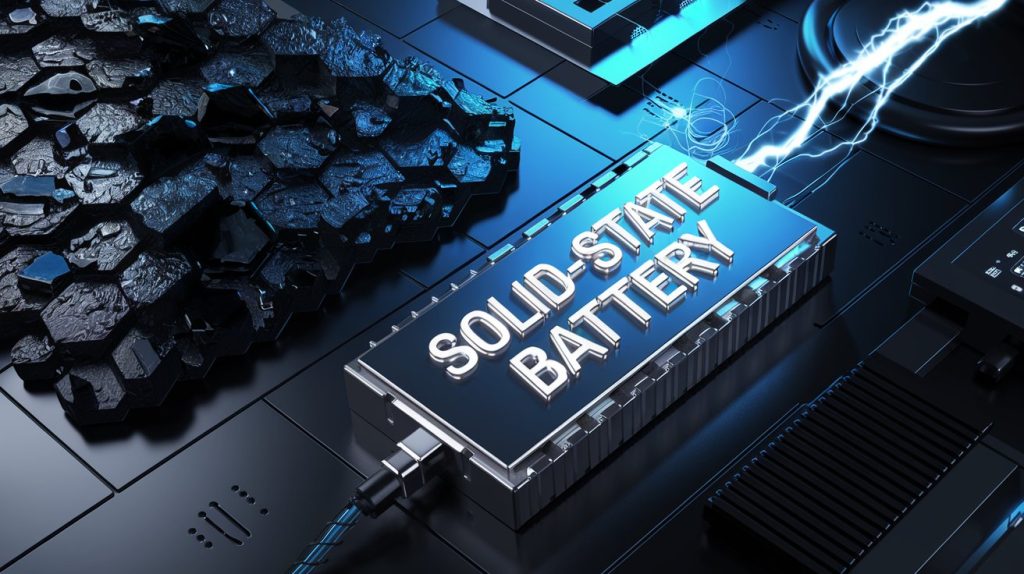
China’s research and development in solid-state batteries are progressing rapidly, with significant breakthroughs positioning the country as a leader in this field. The focus is on overcoming technical challenges and reducing costs to facilitate the widespread adoption of this technology in electric vehicles and other applications. The future looks bright for solid-state batteries, with China playing a pivotal role in shaping the next generation of energy storage solutions.
LiFePO4 Batteries: The Industrial Workhorse Before Solid-State
As the world eagerly anticipates the maturation of solid-state batteries, LiFePO4 (LFP) batteries, also known as lithium iron phosphate batteries, continue to hold the fort as the preferred choice for industrial power applications. Their dominance stems from a trifecta of advantages: safety, cost-effectiveness, and stability, which make them a reliable workhorse in the realm of industrial vehicles.
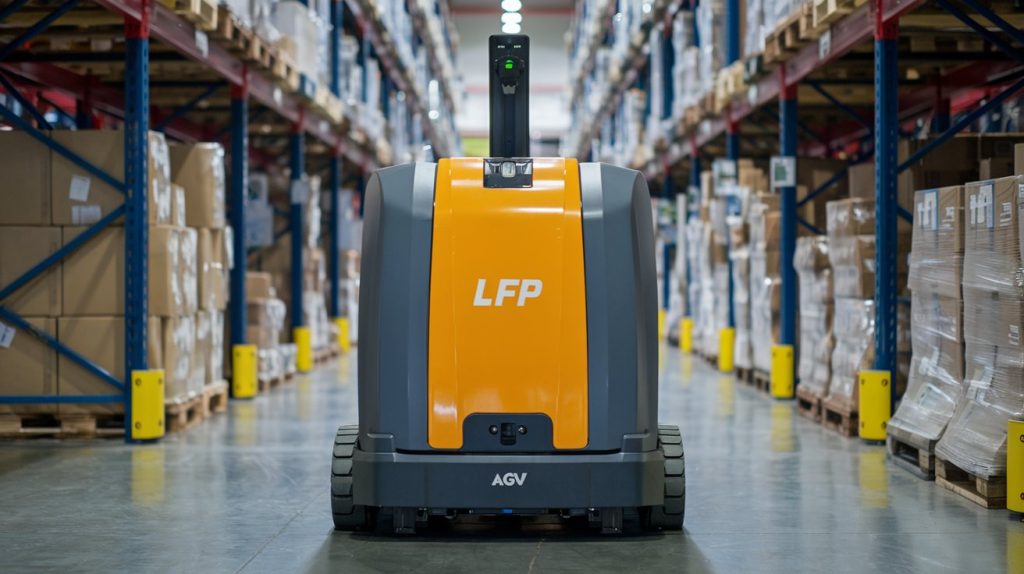
Safety First
LFP batteries are celebrated for their safety profile. Unlike their more volatile lithium-ion counterparts, LFP batteries exhibit a lower risk of overheating and fire due to their stable cathode material and inherently lower operating temperatures . They are also equipped with a built-in protection circuit, known as a Battery Management System (BMS), which guards against overcharge, over-discharge, and short-circuit incidents. This feature is particularly crucial in industrial settings where safety is paramount.
Cost-Effective and Competitive
In terms of economics, LFP batteries offer a compelling value proposition. They are often more affordable than other lithium-ion chemistries, which is a significant factor in industries where cost control is key. The lower cost of raw materials and the relatively simple manufacturing process contribute to their overall economic advantage. As the market for LFP batteries expands, economies of scale are expected to further drive down costs, making them even more attractive for industrial applications .
Stability and Longevity
Stability is another cornerstone of LFP batteries’ appeal. They boast a long cycle life, which means they can be charged and discharged many times without a significant loss in capacity. This endurance is ideal for industrial vehicles that require consistent performance over extended periods. Additionally, LFP batteries exhibit minimal degradation, ensuring a reliable and steady power output over time.
Widespread Applications in Industrial Vehicles
The industrial vehicle sector has been quick to recognize and adopt LFP batteries for their forklifts, aerial work platforms, and other material handling equipment. The batteries’ ability to deliver high currents makes them well-suited for applications that require short bursts of power, such as lifting and moving heavy loads. Moreover, their robustness against deep discharge and their wide operating temperature range make them suitable for the demanding conditions often encountered in industrial settings.
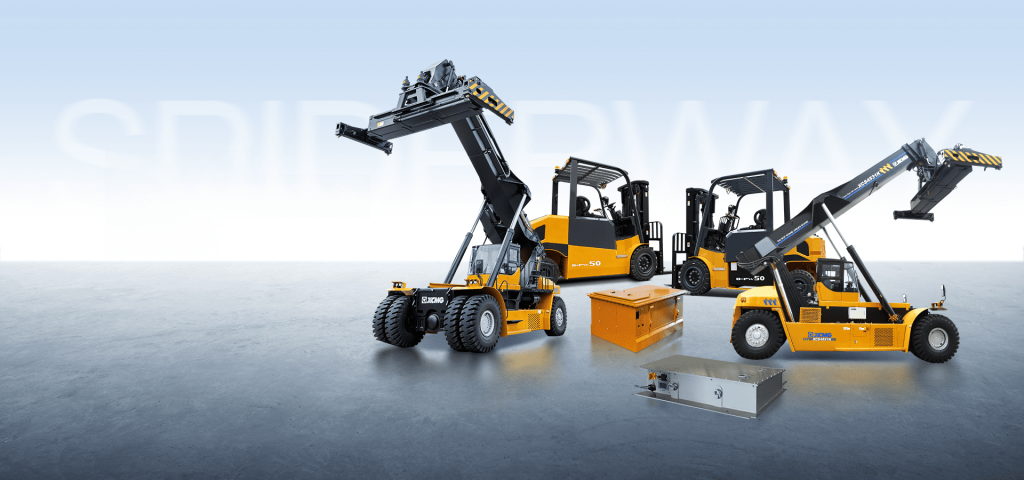
Introducing SPIDERWAY Industrial Vehicle Lithium Battery Solutions
SPIDERWAY, a leading name in the lithium battery industry, offers a range of LFP batteries specifically designed for industrial vehicles. With a decade of experience in OEM/ODM lithium batteries, SPIDERWAY provides global energy solutions that are widely applied in various types of industrial vehicles, such as forklifts, golf carts, and elevated work platforms . Their products are renowned for their safety, reliability, and performance, making them a trusted choice for businesses looking to enhance their operations with efficient and durable energy solutions.
- 48V 304AH LiFePO4 lithium battery for KOMATSU Forklift FB20-12 Type
- Product on sale48V 404Ah LiFePO4 lithium battery for LIUGONG forkliftOriginal price was: $5,399.00.$5,318.00Current price is: $5,318.00.
- Product on sale48V 606Ah LiFePO4 lithium battery for HELI forkliftOriginal price was: $7,999.00.$7,978.00Current price is: $7,978.00.
- Product on sale
 80V 404Ah LiFePO4 lithium battery for HELI K2 3.5T forkliftOriginal price was: $8,399.00.$8,310.00Current price is: $8,310.00.
80V 404Ah LiFePO4 lithium battery for HELI K2 3.5T forkliftOriginal price was: $8,399.00.$8,310.00Current price is: $8,310.00. - Product on sale
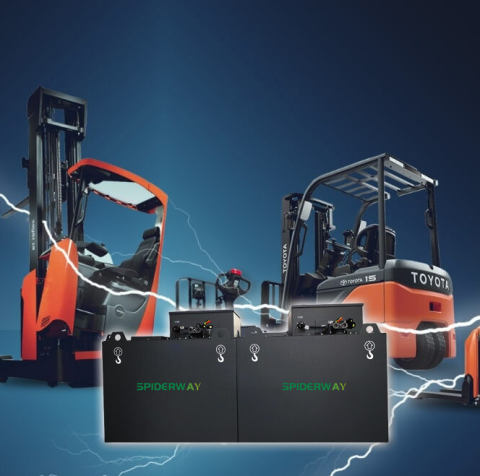 48V 404Ah LiFePO4 lithium battery for LIUGONG 2.5TforkliftOriginal price was: $5,399.00.$5,318.00Current price is: $5,318.00.
48V 404Ah LiFePO4 lithium battery for LIUGONG 2.5TforkliftOriginal price was: $5,399.00.$5,318.00Current price is: $5,318.00. - Product on sale
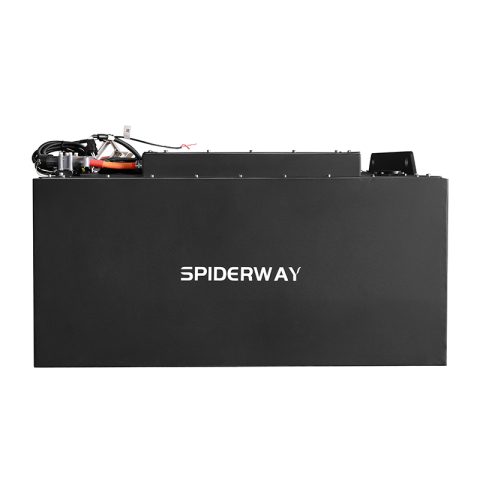 80V 544Ah LiFePO4 lithium battery for TOYOTA forkliftOriginal price was: $11,199.00.$11,190.00Current price is: $11,190.00.
80V 544Ah LiFePO4 lithium battery for TOYOTA forkliftOriginal price was: $11,199.00.$11,190.00Current price is: $11,190.00. - Product on sale
 48V 272Ah LiFePO4 lithium battery for LIUGONG forkliftOriginal price was: $3,599.00.$3,581.00Current price is: $3,581.00.
48V 272Ah LiFePO4 lithium battery for LIUGONG forkliftOriginal price was: $3,599.00.$3,581.00Current price is: $3,581.00. - Product on sale
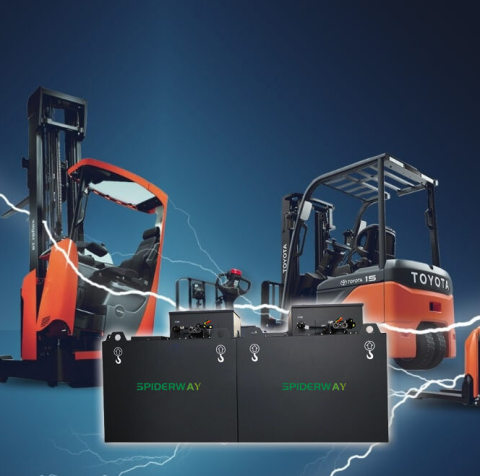 24V 202Ah LiFePO4 lithium battery for LINDE T20 forkliftOriginal price was: $1,399.00.$1,329.00Current price is: $1,329.00.
24V 202Ah LiFePO4 lithium battery for LINDE T20 forkliftOriginal price was: $1,399.00.$1,329.00Current price is: $1,329.00. - Product on sale
 48V 544Ah LiFePO4 lithium battery for HELI CPD20-F1 forkliftOriginal price was: $7,199.00.$7,162.00Current price is: $7,162.00.
48V 544Ah LiFePO4 lithium battery for HELI CPD20-F1 forkliftOriginal price was: $7,199.00.$7,162.00Current price is: $7,162.00.
While the future may belong to solid-state batteries, the present is firmly in the hands of LFP batteries. Their combination of safety, cost-effectiveness, and stability positions them as the go-to choice for industrial power needs, and SPIDERWAY’s product lineup is a testament to their widespread adoption and success in this domain.
Keywords: China, Solid-State Batteries, Energy Storage, Electric Vehicles, Technological Advancements.

